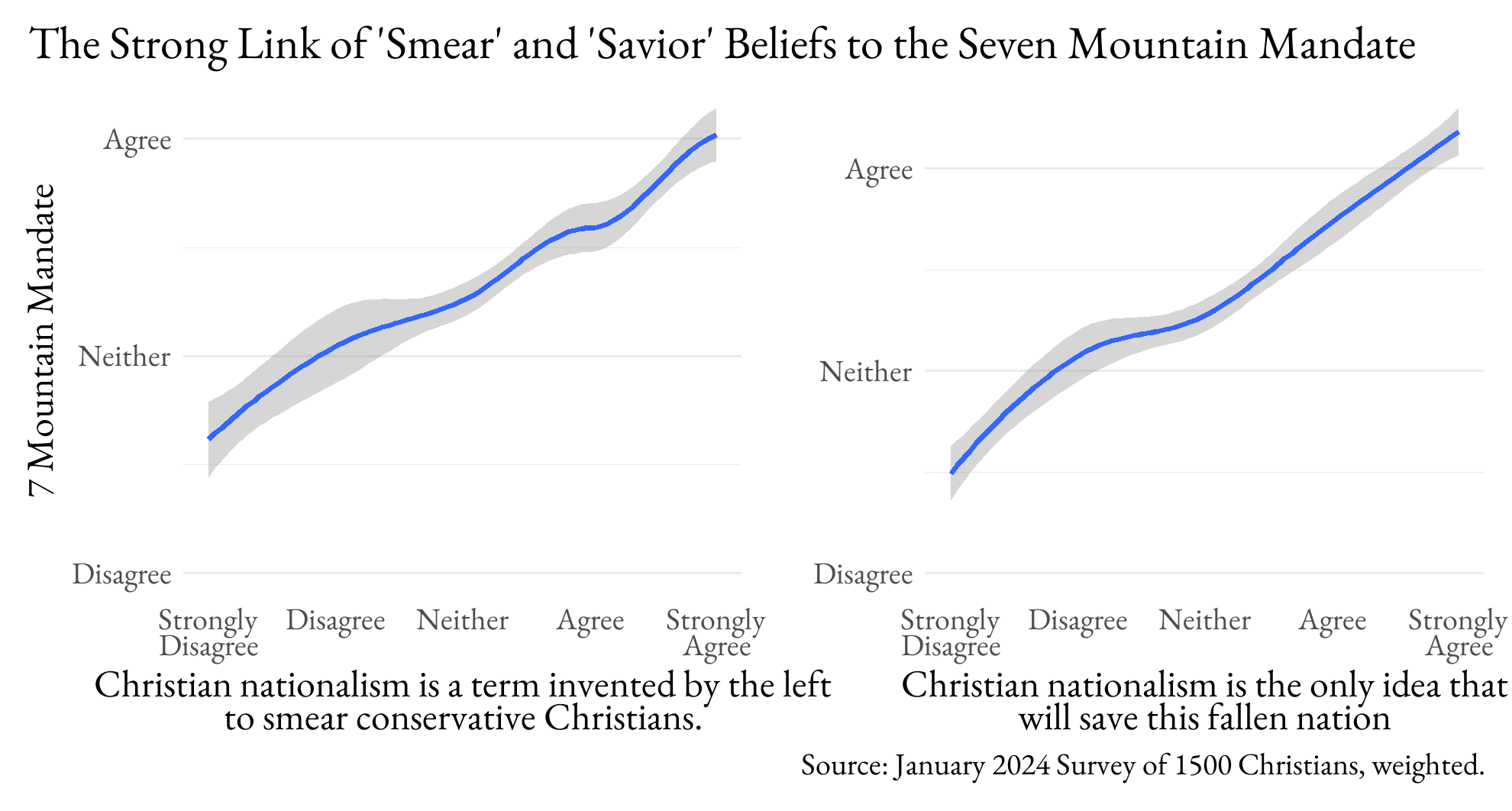By Paul A. Djupe, Denison University
[Image credit: Anabaptist World.]
All it took was some imprecise language from a Politico reporter to fire up the outrage machine. If it means that the rights and liberties of the Constitution were granted by God, then “Christian nationalism” is a smear applied to the broadest swath of the population that simply associates democracy with godliness.
But it is only a smear if they don’t believe it. The more important question, therefore, is what Christian nationalism means to believers. Does it mean simply that the United States as constituted is fulfilling a divine purpose in the world enabling freedom and flourishing? Or is it something more akin to its academic (and activist) meaning – the attempted fusion of the government with Christian control for the benefit of Christians?
Former Pennsylvania Republican gubernatorial candidate Doug Mastriano took deep offense:
“They like calling us Christian Nationalists. I don’t embrace that term. That’s their way to call you a Nazi, when actually they are the Nazis. None of us wants to take any of these rights away. We believe these rights are from God. They do not.”
Mastriano has consistently refused that label, but is prominently associated with it for many reasons, including his links to the New Apostolic Reformation (NAR) – a charismatic network of apostles and prophets deeply engaged in Trump support, including on January 6th, and enmeshed in overt calls for Christian dominion in the world.
NAR Apostle Lance Wallnau, a great supporter of Mastriano, is the coauthor of Invading Babylon: The Seven Mountain Mandate that calls for Christians to occupy the spheres of society, including education and government, until Jesus returns. The 7 mountain mandate is the belief apparently motivating the ruling in the Alabama Supreme Court that embryos outside the womb are children. As Wallnau recently said,
“On top of 7 mountains they call me ‘dominionist.’ I keep on trying to defend myself but maybe I am. I like it. All I know is when Jesus comes back he’s a flaming dominionist. Coming back in flames of fire. Judging all his enemies and taking over.”
Appropriating this language, Trump suggested this may be soon, as election day will be “their Judgment Day…I believe it will be our last chance.” And the 7 mountain mandate is at the foundation of the new Nexus Mountain Network – a social media app created by Chad Hawley, a Lance Wallnau mentee, to promote Christian nationalist candidates according to a new report.
Such talk is not limited to the NAR, of course, but can be found in Project 2025, a product coordinated by the Heritage Foundation and the Center for Renewing America (CFRA) that lays out a Christian conservative blueprint for a second Trump term in office that at least 100 organizations have signed on to. Reported by Politico, a CFRA internal memo explicitly listed “Christian nationalism” as one of its objectives that also included invoking the Insurrection Act on day one to use the military to stop protests.
Still it is possible that elite discourse and machinations are a step removed from what the public thinks. In a sample of 1,500 Christians surveyed in January 2024 and weighted to resemble the adult Christian population in the US, we asked several relevant questions to see what Christians think about this. In this sample, 42 percent agreed or strongly agreed that “Christian nationalism is a term invented by the left to smear conservative Christians;” only 18 percent disagreed while 40 percent chose “neither.”
More revealing is how views about Christian nationalism as a smear are linked to views on a second statement: “Christian nationalism is the only idea that will save this fallen nation.” Of those who strongly agreed that it is a smear, 68 percent also agreed or strongly agreed that Christian nationalism is America’s savior. On the other side are those who strongly disagreed that Christian nationalism is a smear, and among them 74 percent disagreed that it is the only idea that will save America. This evidence suggests that Christians either embrace Christian nationalism as both “smear” and “savior” or reject those notions – there are very few who see it as a smear and reject it as the savior of the US.

The savior statement could still be seen as anodyne support for democracy, except that agreement with Christian nationalism as both smear and savior is also strongly associated with support for the statement that “God wants Christians to stand atop the ‘7 Mountains of Society’ (government, education, business, etc.)” (see the figure below). Moreover, all three of these statements are strongly correlated (r~.5) with our attempt to measure the content of Christian nationalism with six standard items used across political science and sociology, including “The federal government should advocate Christian values for the benefit of Christians.” It is clear that smear/savior Christians are Christian Nationalists who believe in the divine mandate to exercise dominion over the US.

It seems clear that many Christian nationalists do not like being labeled as such even as they see Christian nationalism as a substantive idea that they agree with for restoring Christians to societal dominance. The elite ploy, of course, has been to try and delegitimize opponents who are accurately labeling them. And they use accusations that opponents are trying to take away their rights by calling them Christian nationalists to feed the Christian persecution complex that has been so successful at mobilizing supporters. The fact that those feigning outrage are actually supporters is unlikely to stop them.
Professor Paul A. Djupe directs the Data for Political Research program at Denison University, is an affiliated scholar with PRRI, the series editor of Religious Engagement in Democratic Politics (Temple), and co-creator of religioninpublic.blog. Further information about his work can be found on his website and on TwiX. He is also the coedior of the 2024 book Trump, White Evangelical Christians, and American Politics: Change and Continuity (check this out for a 30% discount).
